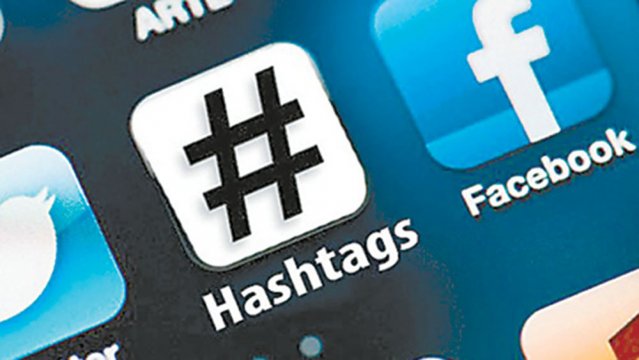
We are currently in the era of the consumer. Especially for millennials, the up-and-comers of the consumer market, there is higher value in fast, easy connections and information. Millennials care more about a past customers’ experience than they do about what your company promises.
It’s not a newfound concept anymore that the majority of people are on at least one social media platform. What may be surprising, however, is that social media is no longer a separate or foreign form of communication. Rather, social media has almost seamlessly become part of commonplace language.
Just last year, The American Dialect Society’s word of the year for 2014 was a hashtag. This is no coincidence. While hashtags can be overbearing when used too frequently, used sparingly, they can cleanly convey the crux of your message to a wide-spread audience.
But it’s not as simple as #throwing #a #hashtag #in #front #of #every #word. Here’s how you can create an effective hashtag.
Offer relevance, not volume.
The hashtag needs to be relevant. Don’t just compose tweets with popular hashtags attached to gain impressions—it won’t work. A hashtag creates categories for conversation and engagement. In order for a face-to-face conversation to work, both parties need to be talking about the same subject and providing different points. The same goes for a conversation on social media networks. If you join a conversation, you need to be saying something relevant.
Take a hint from B2C companies.
Believe it or not, there are hashtags out there for B2B marketing. Do a little research and find one that relates best to what you are marketing, and look to B2C successes and failures to guide your course of action.
You can also create your own. We highly suggest not using your company name. A hashtag is supposed to spark conversation, so try and come up with something clever that people will remember. Beyond just a catchy phrase, the hashtag needs to spark discussion. There have to be things people can say about the topic. A topic (like #innovation or #leadership) is a great way to do this, since other companies and clients can all join the conversation by adding to a list, rather than feeling pressured to provide something insightful if they are going to join the conversation.
Hashtag during events.
A hashtag can be an extremely useful tool for, in particular during a convention. At a convention for franchises, for example, franchisees can promote and deliver content to one another during the convention via a hashtag. A hashtag is also a great way for attendees to converse with those who couldn’t attend. Franchisors can live tweet before, during and after a session, while making sure to include an established hashtag. Franchisors can then engage with the audience (both present and virtual) in real time. Plus, after the convention has ended, a hashtag allows franchisors to keep in communication and sustain a similar energy to that of being at the convention.
Participating in events tends to be very costly for most organizations, so you’ll want to make the most out of it. Come up with a good hashtag that is explicitly for the event. Promote the hashtag and your attendance out on all social platforms weeks before the event. Place it on all brochures, giveaways, posters, and more. It’s a great way to maximize the experience for your attendees, as well as expand your message and keep conversation going beyond the actual event.
Use more than one hashtag.
You can create a hashtag around a specific promotion or campaign that has a limited time frame. You can also have one that engages consumers or clients in a conversation about a specific product, or a hot topic within your industry. Don’t limit yourself to just one hashtag, utilize two or three that are relevant to your company.
While it is valuable for a brand to create a few hashtags, this doesn’t mean you need to use them in every single tweet or post. It doesn’t even mean using them every single day. We recommend a few posts a week (unless you’re promoting a time-specific campaign, in which case you should use the hashtag frequently before and during). Hashtags are a great way to start conversations that revolve around your business, however, they can be overwhelming, and sometimes downright obnoxious, to your followers. Limit your hashtag use to when it’s an extremely insightful or relevant post.
As our founder recently explained, social media is word of mouth on steroids. Hashtags create ongoing conversations, and then allow these conversations to spread rapidly. They allow companies, clients and consumers to share experiences and engage with one another simultaneously. Whether you’re B2C, B2B, or franchise, businesses can benefit from the word economy and clarity that hashtags provide.



